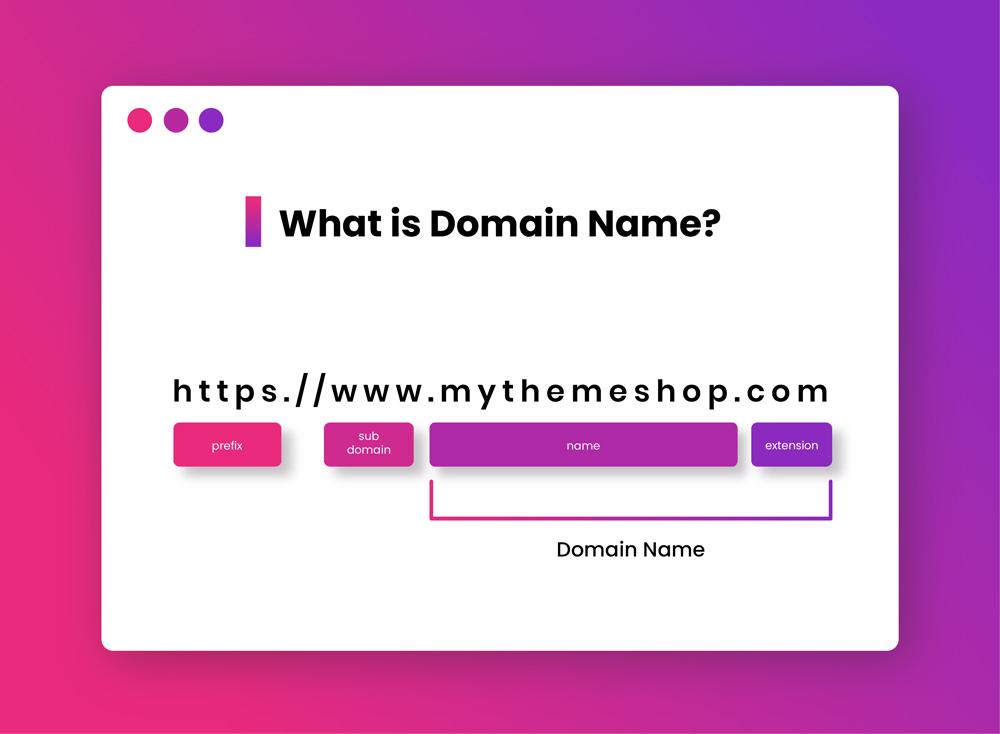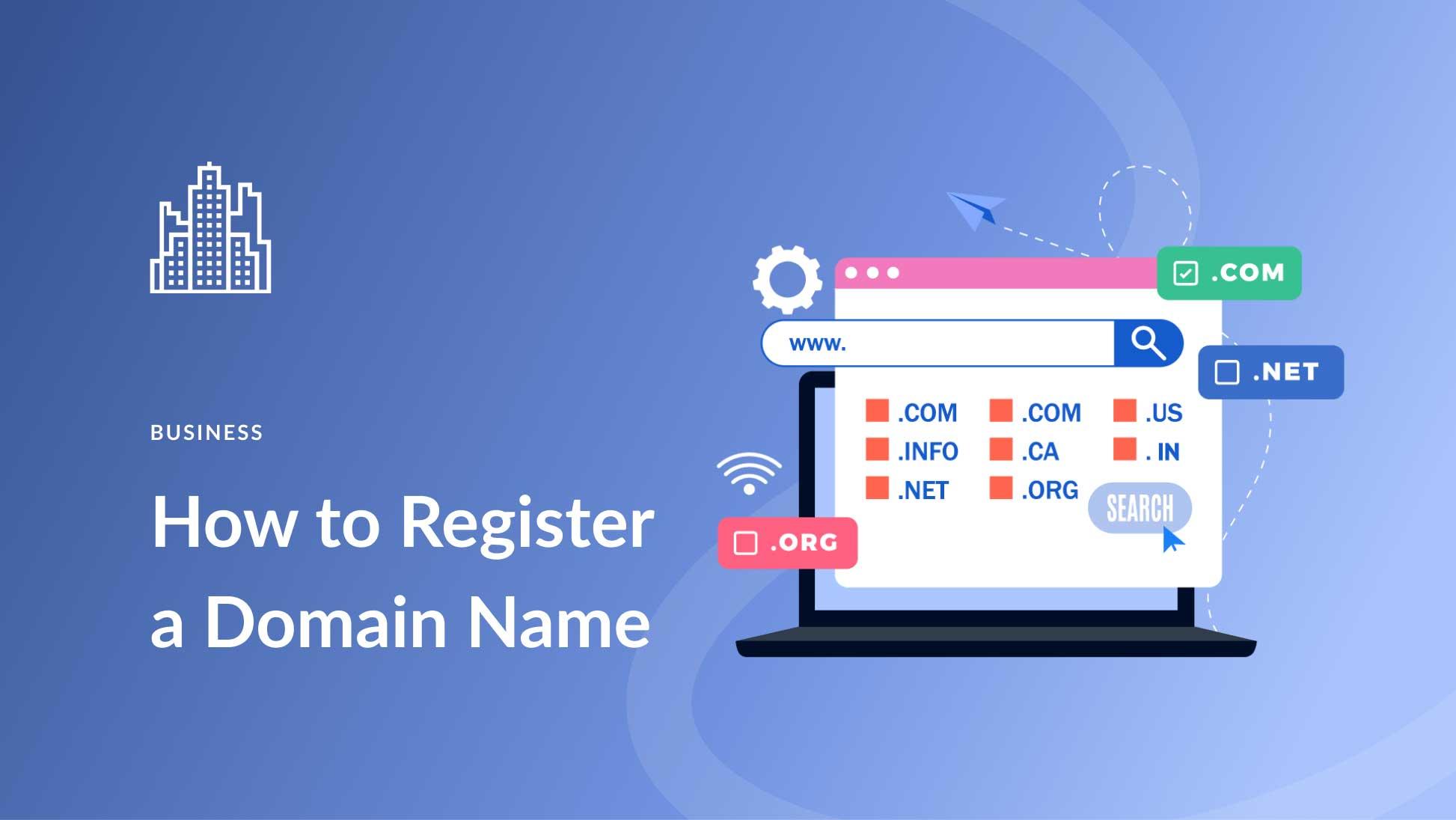When diving into the online world, it’s crucial to understand the difference between web hosting and domain names. Think of your domain as your address on the internet, while web hosting is like your house. You need both to establish a thriving online presence!
Web Hosting vs Domain Name: What’s the Difference?
When you’re diving into the world of building a website, you might find yourself tossing around terms like “web hosting” and “domain name” as if they were interchangeable. But let me tell you, they’re as different as a house and its address! Understanding the distinction between these two essential components is crucial for anyone looking to establish a strong online presence. Whether you’re a budding entrepreneur ready to launch your first e-commerce site or a creative looking to showcase your portfolio, knowing the difference can save you time, money, and a whole lot of confusion. So, let’s break it down together: what’s the real deal with web hosting and domain names, and why does it matter for your digital journey? Buckle up; we’re about to make sense of it all!
Understanding the Basics of Web Hosting and Domain Names
When you embark on building your online presence, two key components come into play: web hosting and domain names. While they often get lumped together in conversation, they serve very different functions. Understanding these basics is essential for anyone looking to establish a website, whether for personal blogging, e-commerce, or showcasing a portfolio.
Web hosting is essentially the service that stores your website’s files and makes them accessible on the internet. Think of it as the physical space where your website lives. Without hosting, your beautifully designed site would be just files on your computer, invisible to the world. Here are some key points about web hosting:
- Storage Capacity: Different hosting plans offer varied storage limits based on your needs.
- Site Speed: Quality hosting can significantly affect how quickly your site loads.
- Support: Good hosting services provide customer support to help troubleshoot issues.
On the flip side, a domain name is your website’s address on the internet. It’s what users type into their browser to find you, like www.example.com. This is your brand’s digital identity, and choosing the right one is crucial. Here are some factors to consider when selecting a domain name:
- Simplicity: Choose a name that’s easy to spell and memorable.
- Relevance: A domain that reflects your business can enhance brand recognition.
- SEO-Friendly: Incorporating keywords can help improve your site’s search engine ranking.
To clarify the distinction further, let’s break it down in a simple table:
| Aspect | Web Hosting | Domain Name |
|---|---|---|
| Purpose | Stores website files | Website’s address |
| Cost Structure | Monthly or yearly fees | Annual registration fees |
| Examples | Bluehost, SiteGround | Google.com, Example.org |
both web hosting and domain names are integral to your online venture, yet they fulfill distinct roles. A solid understanding of each will empower you to make informed decisions as you navigate the digital landscape. Whether you’re just starting or looking to upgrade your existing setup, knowing the ins and outs can save you time and money in the long run.
Why Your Website Needs Both Hosting and a Domain Name
When it comes to establishing an online presence, having a domain name and web hosting is like having both a physical address and a space to build your home. Each component plays a crucial role in ensuring that your website functions effectively and is easily accessible to users around the world.
Domain Name: This is your website’s address on the internet. Think of it as your online identity, the unique name that users will type into their browser to find you. A memorable and relevant domain name enhances your brand’s credibility and makes it easier for visitors to remember how to find you. A good domain name can influence your search engine rankings, making it vital for online visibility.
Web Hosting: Hosting is the service that allows your website to be accessible on the internet. It’s where your website’s files, images, and content are stored. Without hosting, your domain name would lead nowhere. The quality of your hosting service can impact your website’s performance, speed, and reliability. A reliable host ensures that your site is always up and running, minimizing downtime and enhancing user experience.
To illustrate the importance of both components, consider the following table:
| Factor | Domain Name | Web Hosting |
|---|---|---|
| Purpose | Your online address | Storage for your website’s files |
| Influence on SEO | Can enhance search visibility | Affects loading speed and uptime |
| Cost | Annual purchase | Monthly or annual fees |
Moreover, having both a domain name and hosting is essential for establishing trust with your audience. Users are more likely to engage with a website that appears professional and reliable. When they see a custom domain name rather than a generic one, it signals that you are serious about your business. On the other hand, fast and dependable hosting contributes to a smooth browsing experience, encouraging visitors to stay longer on your site.
while a domain name is the first step in creating your online identity, web hosting is what brings that identity to life. Investing in both will set a solid foundation for your website, enabling you to build and grow your online presence effectively. Don’t underestimate the power of pairing these elements together; they are essential to your success in the digital landscape.
Exploring the Relationship Between Domain Names and Web Hosting
When diving into the world of building an online presence, the terms ”domain name” and ”web hosting” often pop up in conversations. While they are closely related, they serve distinct functions that are crucial for anyone looking to create a website. Understanding their relationship is essential for making informed decisions about your online strategy.
A domain name is essentially your address on the internet. It’s what users type into their browser to find your site. For instance, if you own the domain name www.example.com, that is the point of entry for visitors to access your online content. Think of it as the nameplate on your digital storefront. However, while the domain name identifies your website, it doesn’t actually hold any content. This is where web hosting comes into play.
Web hosting is the service that provides the actual space where your website’s files are stored. It acts like a physical location where your website lives, ensuring that your content is accessible to users across the globe. Without web hosting, your domain name is just an address without a house. In other words, you can own a great domain name, but without the necessary hosting service, it won’t lead anywhere.
To better illustrate this relationship, consider the following points:
- Ownership vs. Service: You own your domain name, but you pay for web hosting services.
- Identity vs. Functionality: The domain is your website’s identity, while hosting provides its functionality.
- Static vs. Dynamic: The domain name remains constant, while web hosting may change as your site grows.
Here’s a quick comparison of the two:
| Domain Name | Web Hosting |
|---|---|
| Acts as the website’s address | Stores and serves website content |
| Purchased annually | Paid monthly or annually based on the plan |
| Can be transferred between registrars | Can be upgraded or downgraded based on needs |
When selecting both a domain name and a web hosting provider, it’s vital to ensure they align with your goals. A catchy domain can attract attention, but if it’s paired with unreliable hosting, your efforts may be wasted. Therefore, consider both elements as part of a cohesive strategy for establishing a strong online presence.
while domain names and web hosting serve different purposes, they are two sides of the same coin. Grasping the nuances of their relationship will help you not only choose the right options for your needs but also establish a solid foundation for your digital journey.

Key Differences That Set Web Hosting Apart from Domain Names
When diving into the world of the internet, it’s essential to understand the distinct roles that web hosting and domain names play. Often confused, these two elements are crucial for establishing an online presence, yet they serve fundamentally different purposes.
Web Hosting is like the physical space where your website resides. Imagine it as the land or building where you store all your belongings — in this case, your website’s files, images, and databases. Without a hosting service, your website simply wouldn’t exist on the internet. Here are some key attributes of web hosting:
- Storage Space: Hosting provides the necessary storage for your website’s data.
- Server Maintenance: Hosting services handle server upkeep, ensuring your site runs smoothly.
- Bandwidth: This determines how much traffic your site can handle at any given time.
- Security Features: Many hosting providers offer security options to protect your site from online threats.
On the flip side, a Domain Name is akin to the address of your home. It’s what users type into their browsers to find your website. Just like an address uniquely identifies a location, a domain name serves as a unique identifier for your site on the vast internet landscape. Here’s what you should know about domain names:
- Unique Identifier: Each domain name is unique, meaning no two websites can share the same domain.
- Human-Readable: A domain name is easier to remember than a string of numbers, which constitutes an IP address.
- Branding: A well-chosen domain can enhance your brand’s identity and credibility.
- Renewal Required: Domain names need to be renewed periodically, typically every year.
To further illustrate the differences, consider the following table that highlights the core contrasts between web hosting and domain names:
| Aspect | Web Hosting | Domain Name |
|---|---|---|
| Purpose | Stores website files and data | Serves as the website’s address |
| Physical vs. Conceptual | Physical server space | Conceptual address |
| Ownership | Monthly or annual service | Requires registration and renewal |
| Dependency | Needs a domain to be accessed | Needs hosting to display content |
while web hosting and domain names are interdependent, they serve distinct functions that are vital to your online success. Recognizing these differences can better equip you to choose the right services for your website, ensuring that your digital presence is both accessible and effective.

How to Choose the Right Web Hosting Service for Your Needs
Choosing the right web hosting service can seem overwhelming, especially with the myriad of options available. However, understanding your specific needs is the first step towards making an informed decision. Different types of hosting services cater to various requirements, so let’s break down the main factors to consider.
1. Identify Your Website Type:
- Are you launching a personal blog, an e-commerce site, or a portfolio?
- Your choice of hosting may depend on whether you expect high traffic or just a few visitors.
2. Assess Your Technical Skills:
- If you’re a beginner, consider a hosting service that offers a user-friendly interface and excellent customer support.
- For those with technical expertise, a VPS or dedicated server might provide the level of control and customization you desire.
3. Consider Performance and Reliability:
- Look for hosting providers that guarantee uptime of 99.9% or higher.
- Speed is crucial; slow loading times can deter visitors. Check for services that offer content delivery networks (CDNs) or SSD storage.
4. Evaluate Pricing and Features:
Compare pricing plans not just based on the initial offer but also on what you’ll be paying after the first term. Key features to look for include:
- Bandwidth and storage limits
- Domain registration options
- SSL certification for security
| Feature | Basic Hosting | Shared Hosting | VPS Hosting | Dedicated Hosting |
|---|---|---|---|---|
| Cost | Low | Moderate | Higher | Highest |
| Control | Limited | Moderate | High | Full |
| Performance | Basic | Good | Very Good | Excellent |
5. Customer Support:
- Check what support channels are available: live chat, phone, or email?
- Reading reviews about response times and helpfulness can provide insight into their customer service quality.
Ultimately, the best web hosting service for you will align with your website’s goals, your technical proficiency, and your budget. Take the time to weigh these factors, and you’ll find a host that supports your growth and success online.

Selecting the Perfect Domain Name: Tips and Tricks
Choosing a domain name is one of the most crucial steps in establishing your online presence. It’s not just about picking something that sounds catchy; it’s about selecting a name that resonates with your audience and reflects your brand identity. Here are some useful tips to help you make the right choice:
- Keep it Short and Simple: Aim for brevity. A domain name that is easy to spell and remember will help users find your website without frustration.
- Choose the Right Extension: While .com is still the gold standard for domain extensions, consider alternatives like .net or .org if they align better with your brand.
- Avoid Hyphens and Numbers: These can create confusion. If someone hears your domain name, they might not know whether to use a number or spell it out.
- Make it Relevant: Your domain name should give visitors an idea of what your site is about. Including keywords can help with search engine optimization.
- Check Availability: Before you get too attached to a name, make sure it’s available. Use domain registration sites to check for availability.
Another critical aspect to think about is the future of your brand. Consider how scalable your domain name is. Will it still fit if you expand your product line or services? A flexible name can save you the hassle of rebranding later on.
Additionally, conduct some research to ensure that your chosen name doesn’t infringe on any existing trademarks. This will save you from potential legal issues and help you maintain credibility with your audience.
Lastly, get feedback from peers or potential customers. Sometimes, a fresh set of eyes can provide insights you might have overlooked. A domain name is not just a URL; it’s an integral part of your brand identity. Make sure it’s one that you feel proud to share!
| Tip | Details |
|---|---|
| Keep it Short | Maximize recall by limiting to 2-3 words. |
| Choose the Right Extension | Consider alternatives based on your audience. |
| Avoid Confusion | No hyphens or numbers to ensure clarity. |

The Importance of Domain Name Registration and Renewal
Choosing the right domain name is just the first step in establishing your online presence. Once you’ve made that choice, the importance of registering and renewing your domain cannot be overstated. A domain name is not just a web address; it’s a critical part of your brand identity. Failing to keep your domain registered can lead to serious repercussions.
Protecting Your Brand: A domain name represents your brand online. If you let it expire, someone else could snatch it up, potentially leading to brand confusion or even impersonation. This can dilute your identity and harm your reputation. By ensuring your domain is registered and renewed on time, you safeguard your brand’s integrity and continuity.
The Risk of Losing Traffic: An expired domain doesn’t just mean losing your website; it can also mean losing valuable traffic. If a potential customer types in your domain and it’s no longer active, they may turn to competitors instead. This lost traffic can translate into lost sales and opportunities. Keeping your domain active ensures that your audience can always find you.
SEO Implications: Search engine optimization (SEO) is crucial for visibility online. Expired domains can lead to a drop in your search engine rankings. When your domain is renewed, it reinstates your web presence, allowing you to maintain your hard-earned SEO standing. Consistency in domain registration can positively influence your overall search engine performance.
Cost-Effective Strategy: Investing in domain registration and renewal is cost-effective in the long run. The small annual fee is negligible compared to the potential losses incurred from missing out on customers or damaging your brand. Additionally, many registrars offer discounts for bulk renewals or longer registration periods, making it an even smarter choice.
| Benefit | Description |
|---|---|
| Brand Protection | Keep competitors from claiming your identity. |
| Traffic Retention | Ensure customers can always find your site. |
| SEO Stability | Maintain your search ranking and visibility. |
| Cost Efficiency | Save money compared to the cost of lost business. |
registering and renewing your domain is not just a mere formality; it’s a strategic necessity. It’s a small investment for a significant return, offering protection, maintaining traffic, and enhancing your online presence. Don’t overlook this critical aspect of your digital strategy—secure your domain today and keep your business thriving!

What to Look for in a Web Hosting Provider
Choosing the right web hosting provider is crucial for establishing a successful online presence. With countless options available, it’s important to focus on certain key factors that will ensure your website runs smoothly and efficiently. Here are some essential aspects to consider:
- Performance and Reliability: Look for a hosting provider that guarantees high uptime rates, ideally over 99.9%. Performance metrics like speed are also vital; a slow-loading site can deter visitors.
- Customer Support: Opt for a provider that offers 24/7 customer support. Whether through live chat, phone, or email, having access to knowledgeable assistance can save you time and frustration when issues arise.
- Scalability: As your website grows, your hosting needs may change. A good provider should offer scalable plans that allow you to upgrade or adjust your resources without hassle.
- Security Features: Security is non-negotiable. Look for providers that offer features like SSL certificates, firewalls, and regular backups to protect your site and data.
- Pricing and Value: While it’s tempting to go for the cheapest option, consider the overall value. Compare features included in different plans to find one that meets your needs without breaking the bank.
To help you visualize the differences among various hosting options, here’s a simple comparison table:
| Hosting Type | Pros | Cons |
|---|---|---|
| Shared Hosting | Cost-effective, easy to use | Limited resources, slower speeds |
| VPS Hosting | More control, better performance | Higher cost, requires technical knowledge |
| Dedicated Hosting | Full control, high performance | Most expensive, management can be complex |
| Cloud Hosting | Scalable, reliable | Can be costly, potential for complexity |
don’t forget to read reviews and ask for recommendations. Hearing from other users can provide insight into a provider’s actual performance and customer satisfaction. Take your time to research and weigh your options, as the right hosting provider is foundational to your website’s success.

Common Misconceptions About Hosting and Domain Names
When it comes to web hosting and domain names, many people often get their wires crossed. It’s easy to see why—these two elements work hand-in-hand to put your website on the map, yet they serve very different purposes. Let’s clear up some of the most common misconceptions surrounding them.
One of the biggest myths is that a domain name and web hosting are essentially the same thing. While they are interconnected, they are not interchangeable. A domain name is your online address, akin to your home address in the real world. It’s the name that users type into a browser to find your site, like www.example.com. On the other hand, web hosting is like the physical space where your website lives—the server that stores your content, files, and data, making it accessible to visitors.
Another widespread misconception is that purchasing a domain name automatically includes web hosting services. Not true! While some providers offer bundled services, you can buy a domain name independently from a hosting provider. This flexibility allows you to shop around for the best web hosting plans without being tied to one registrar.
Some people believe they only need to focus on one of these two components, thinking that having a fantastic domain name alone is enough. However, the reality is that both elements are crucial for your online presence. A catchy domain name can attract visitors, but without reliable hosting, your site may suffer from slow load times or downtime, driving potential customers away.
Moreover, there’s a common assumption that switching hosting providers or domain registrars is a nightmare. The truth is, while it may seem daunting, the process can be quite straightforward if you follow the necessary steps. Many providers offer support to help you transition smoothly, ensuring that you don’t lose your valuable web presence in the process.
many believe that a higher price tag guarantees better hosting or domain services. While cost can be an indicator of quality, it’s not always the case. There are plenty of affordable options that provide excellent service. It’s essential to do your research, read reviews, and compare features rather than simply opting for the priciest package.
Understanding the differences and dispelling these myths can empower you to make informed decisions for your online endeavors. Embrace the unique roles that web hosting and domain names play in your website’s success!

Final Thoughts: Making Informed Choices for Your Online Presence
As you navigate the digital landscape, it’s essential to understand the distinction between web hosting and domain names. These two components are the foundation of your online presence, and knowing how they work together can empower you to make choices that align with your goals.
First, consider the role of a domain name. Think of it as your internet address—a way for users to find you online. Choosing the right domain name is crucial. It should be memorable, relevant to your brand, and ideally, it should reflect your business or content. Here are some tips for selecting a domain name:
- Keep it short and simple.
- Avoid numbers and hyphens.
- Try to use relevant keywords.
- Ensure it resonates with your target audience.
On the other hand, web hosting is where your website lives. It’s the service that stores your site’s files and makes them accessible on the internet. The choice of web hosting can significantly affect your website’s performance, security, and reliability. Here’s what to consider when selecting a web hosting provider:
- Evaluate the uptime guarantee.
- Look for scalable options as your site grows.
- Check customer support availability.
- Compare pricing and features.
It’s also essential to think about how both elements work together. Without a domain name, your web hosting service is like a house without an address—no one can find it. Conversely, a domain name without hosting is just an empty shell. To illustrate this further, here’s a simple comparison:
| Feature | Domain Name | Web Hosting |
|---|---|---|
| Definition | Your website’s address | Storage for your website’s files |
| Purpose | Helps people find your site | Serves your site content to visitors |
| Examples | example.com | Bluehost, HostGator |
Ultimately, making informed choices about both your domain name and web hosting is vital for creating a successful online presence. By carefully considering your options and aligning them with your brand’s objectives, you can set the stage for a seamless and impactful digital experience. Embrace the journey of establishing your online identity, and remember that your choices today will shape your online future.
Frequently Asked Questions (FAQ)
Q&A: Web Hosting vs Domain Name: What’s the Difference?
Q1: What exactly is a domain name?
A1: Great question! A domain name is essentially your website’s address on the internet. Think of it like your home address; it’s how people find you online. For example, ”www.example.com” is a domain name. It’s what users type into their browser to reach your site, and it’s crucial for establishing your brand’s online identity.
Q2: And what about web hosting? What does that mean?
A2: Web hosting is the service that allows your website to be accessible on the internet. When you create a website, all the files, images, and data need to be stored somewhere. This is where web hosting comes in – it provides the server space where all those elements are kept. Without web hosting, your domain name would lead to a blank page!
Q3: So, I need both a domain name and web hosting for my website?
A3: Absolutely! They work hand in hand. You can think of your domain name as the signpost that directs visitors to your website, while web hosting is like the building where your website’s content lives. Without one, the other can’t fulfill its purpose.
Q4: Can I purchase a domain name without getting web hosting?
A4: Yes, you can! Many people buy domain names separately from their web hosting. This allows you to secure your desired name even if you’re not quite ready to build your site yet. Just keep in mind that if you don’t have web hosting, your domain will be like an empty lot – it’s there, but there’s nothing on it for people to see.
Q5: Are there services that offer both domain registration and web hosting?
A5: Definitely! Many providers bundle both services together, which can be super convenient. This way, you can manage everything from one dashboard, making your life a lot easier. Just be sure to choose a reputable provider that offers reliable customer support and solid uptime.
Q6: What should I look for when choosing a web hosting service?
A6: Great question! Look for factors like reliability (aim for a 99.9% uptime), speed (fast loading times are crucial for user experience), customer support (24/7 support is ideal), and scalability (you want a host that can grow with your needs). Also, consider the type of hosting (shared, VPS, dedicated, etc.) that best fits your project.
Q7: Is it possible to change my web hosting service later?
A7: Yes, you can! Many businesses and individuals change their web hosting providers as their needs evolve. Just keep in mind that this process may require some technical know-how, especially if you have a lot of content to migrate. But don’t worry; most reputable hosting services offer assistance with the transfer.
Q8: Any tips for choosing a domain name?
A8: Absolutely! Keep it short, memorable, and relevant to your brand or business. Avoid any complicated spellings or hyphens, as they can confuse users. It’s also wise to check if the domain name is available across social media platforms for a cohesive online presence.
Q9: How can I make sure I don’t lose my domain name?
A9: To secure your domain name, consider registering it for multiple years instead of just one. Also, enable auto-renewal to avoid accidental lapses. Keeping your contact information up to date with your registrar ensures you won’t miss any important notifications about your domain.
Q10: Why should I care about understanding the difference between web hosting and domain names?
A10: Understanding the difference is crucial for anyone looking to establish an online presence. It empowers you to make informed decisions about your website’s setup. Plus, it helps you avoid common pitfalls, saving you time, money, and frustration down the line. Knowledge is power, especially in the digital world!
So there you have it! Now you’re ready to tackle the wonderful world of web hosting and domain names with confidence. Happy website building!
Insights and Conclusions
As we wrap up our exploration of web hosting and domain names, it’s clear that understanding the distinction between the two is crucial for anyone looking to establish an online presence. Think of your domain name as your address on the internet—it’s how people find you. Meanwhile, web hosting is the home where your website lives, ensuring that visitors can access your content anytime they want.
Choosing the right domain name and web hosting provider isn’t just a technical decision; it’s a foundational step in your online journey. A catchy domain name can attract visitors, while reliable hosting ensures they have a seamless experience. So, whether you’re starting a blog, launching an online store, or promoting your portfolio, take the time to choose wisely.
By investing in a solid domain and hosting service, you’re not just putting a website out there; you’re building your brand, reaching your audience, and opening the doors to endless possibilities. So go ahead, take that next step, and get your digital space just right. The internet is waiting for you!





